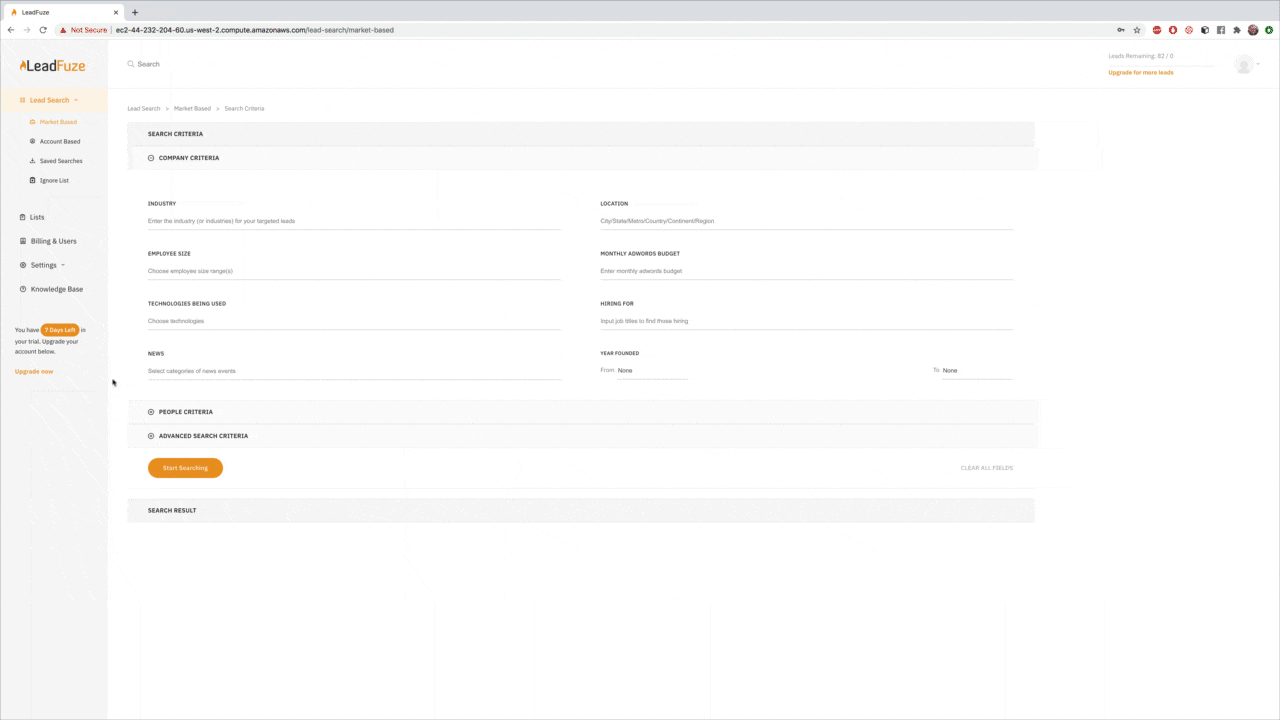What Is Sales Role Play?
Sales role play is a tool for training your sales team. It recreates sales situations that your team may experience in real-life selling, with your sales team members playing the roles of salesperson and prospect. A sales scenario, on the other hand, is the sales situation that your team needs to act out.
Sales role play training improvises a sales scenario a sales rep may encounter on a typical day on the job. It gives them a risk-free opportunity to try out new selling techniques.
This training prepares your sales team for situations they would not have anticipated, which sets them up for confident and more successful selling. They learn how to navigate roadblocks and customer objections that inexperienced reps, in particular, may struggle to overcome.

(Image Source: Elevate Corporate Training)
Consider this fact:
“Quizzing oneself on new material, such as by reciting it aloud from memory or trying to tell a friend about it, is a far more powerful way to master information than just re-reading it, according to work by researchers including Henry Roediger III and Jeffrey Karpicke. (Roediger has co-authored his own book, “Make It Stick: The Science of Successful Learning.”)”
Aside from being a great teaching moment in enhancing the skills of your team, training them with sales role play scenarios also models preparedness.
By using different examples of role play scenarios, your sales reps get to prepare for the unexpected — or shall I say, the worst situations with potential clients.
5 Reasons Why Sales Role Play Training Works
There is always the danger that the sales rep may jeopardize the sale if they experiment with a new selling technique. Sales role play training prevents this by giving your reps a platform to perfect any new techniques before they try them on actual prospects.
Here are other reasons why you should make sales role play a part of your training regime:
1 Creates familiarity
Your team will be interacting with varying personality types within the course of their work. It helps if they can devise the best ways to handle them before they have to meet and interact with them.
Sales role play scenarios allow your team to picture different kinds of sales situations and actually experience them so they won’t be as intimidated when they meet real prospects.
2 Teaches how to deal with sales pressure
Performing in front of your peers or co-workers is one of the most difficult situations your sales rep can be in. It can actually be more intimidating than interacting with real customers.
So if they can overcome the pressure of performing in front of their colleagues in role plays, there’s a good chance they’d also perform well with real clients. The more practice and experience they get, the better they’ll handle themselves on sales calls.

3 Builds empathy
The ability to show empathy is an underrated selling skill. What better way to put them in the shoes of the customer than have them play the customer?
Oftentimes as salespeople, we exploit our prospects’ ignorance and ‘talk down’ on them, which only alienates and prevents them from fully opening up.
The right sales role scenario lays bare to a sales rep and forces them to reflect on the areas where specific deals failed and provides them an opportunity to quietly chide and correct themself.
4 Builds conflict resolution skills
Your sales reps are going to meet a lot of frustrated prospects and deal with many angry customers. Unless they can diffuse tense situations with clients before things boil over, they are gong to lose big sales and long-term customers.
To prevent this, you can create a sales scenario where you play the role of the angry customer to assess how your sales reps are dealing with such situations. You may be surprised that some of your sales reps lack conflict resolution skills and just aren’t prepared for these situations.
5 Improves learning efficiency
Sales role playing switches things up and offers a different kind of learning environment for your team members. It provides an alternative way to learn for team members who prefer a more experiential training approach.
‘Sell Me This Pen’ – What Should You Sell In Sales Role Play Training?
As a sales rep who has prepared for a few job interviews, you should be familiar with the ‘sell me this pen’ sales role play interview that recruiters like to use to test the selling skills of potential sales job applicants.
You have probably watched Matt Damon’s star turn in the movie Wolf of Wall Street a few times when preparing for a job interview. But it’s important to point out that what you sell doesn’t really matter. What matters is to know that what you actually sell is a solution, not a product.

(Image Source: Ampliz)
Using that familiar example of a pen, many new reps will try to sell the pen by explaining the qualities of the pen, who manufactured it, how much it costs, and other details about the product.
Yeah sure, the customer might want to learn about that stuff. But the thing is, it’s not the best approach. They may still ask, ‘yeah, but how specifically does that help me?’
Consider this sales role play script:

(Image Source: SalesScripter)
The statements above talk about the product, and that’s OK. But, although it’s important to describe what you are selling, it’s a mistake to dwell on it and think that’s how you will convince the prospect to buy.
The example is a perfect depiction of the “all about me” sales pitch. It’s not engaging at all and doesn’t put the prospect’s needs first.
It’s like having a conversation with someone who makes it all about them — their achievements, their hobbies, their interests, and life in general. You wouldn’t enjoy that, would you?
The prospect is not in the least interested in your product’s features. Your pitch should focus more on their needs than your product.
Though it is a useful example that works in the context of a sales role-play interview, the ‘sell me this pen’ sales scenario is not typical. Prospects don’t usually offer themselves to be sold to. Most times, they resist sales approaches.
5 Sales Role Play Scenarios with Script Examples
To be successful with sales role play when training your new reps it is crucial that you use scenarios they will actually experience in the field. They need to be as close as possible to the real thing, too. So try to pair your newer reps with your more experienced reps.
Here are 5 sales role play scenario examples that your sales team can practice with:
1 The “I’m-interested-but” customer
Doesn’t it seem like prospects always have a ‘but’ to hold up even what seems like slam dunk sales?
No matter what industry you’re in or what product you sell, sales objections are inevitable. Some of these are more hesitations than objections. Either way, you have to overcome them.
If the objection is about pricing, it could go like this:
“I am interested in your product but [amount] is too much to pay every month?”
Unless you can clearly explain what value the prospect is getting for the money they will be spending, the sale will be tough to close. This makes this a good sales role play scenario example to train new hires on how to overcome buyer objections.
Another objection could be about a lack of decision-making power:
“I really like your product but I don’t have the power to authorize the purchase.”
This type of objection can set a sales rep back significantly, but you should still make the most of it by asking the contact if they could connect you with the right person.
If the lead is only a user of the product and not the one who makes the buying decisions, also take the opportunity to find out if the product is the perfect solution for them. It is possible they would be asked this question by the decision maker so you would better find out now if there will be more objections down the line.
Aside from teaching them the best ways to save the sale after such a setback, this example is also useful for demonstrating the struggles of working with poorly qualified leads.
2 The argumentative customer
If there’s one thing your new hires need to know, it’s that every customer is different. Some are courteous and will try to make your interactions as genial as they can. Others, however, will be hostile from the start.
So it’s important to create a sales role play scenario that pushes your reps’ patience to the limit. During the role play, push to make the scenario as unpleasant as possible to see just how long your reps will be able to keep their cool, or if at all.
Here are sales role play script examples you can use for the argumentative customer scenario:
“I have received my product and it’s not what I ordered.”
“I received a broken product—is this how you treat your customers?!”
“Frankly, I don’t think I should pay that much. I want it, of course, but not at that price”
Well, let’s face it. No salesperson wants to deal with grumpy, unhappy clients. If only we can give them everything they want. However, that’s not the case.
And some of the demands prospects will make just can’t be met. Sometimes, you just can’t please a prospect. It’s this, and then after you resolve that, it’s another objection.
It’s up to the sales rep to explain to the prospect why their demands can’t be met. The goal being to save the sale despite the objections the customer keeps throwing at them.
To prepare them for such sales scenarios, take the oppotunity to walk your reps through all the tools they can use to soften argumentative, difficult prospects. These could be coupons, discounts, free deliveries, and other perks.
3 The detail-specific-customer
This role play exercise can test how much your sales team knows about your company and its products. And that’s something you should know than have it exposed by a potential new customer.
For the sales rep who is an expert on their product, this is a dream sales scenario. They live for this sort of customer. But for one who lacks deep knowledge of the product they are selling, it is the worst possible scenario.
In this sales role play scenario, you as the sales leader and expert on the product are going to act out the role of a well-researched customer. Ask very specific questions that only prepared reps that know their product can answer confidently.
Here’s a sales role play script example for the detail-specific customer sales scenario:
“On the A0420, what’s the product I need to purchase to fix the E1206?”
This is the sort of question a client who has diligently done their homework would ask. And just the question you don’t want to field if you are the unprepared sales rep.
Less about preparing your reps on how to deal with the unknown, this role play example highlights to them why they need to know their products on a deep level – better than their prospects.
After this role play activity, you can discuss sales-specific company policies that your sales reps must know about.
If the client needs to speak to an engineer to get answers to their questions, your team should have a script on where to direct customers to.
4 The tech-savvy, window-shopping customer
There are some leads that fit your ideal customer profile to a T. They are tech-savvy, have done their homework, and as a result, know the product and the problem it solves. It seems that they have practically done your job for you.
Be careful, though. What they are doing with you is essentially window shopping. They will ask very pointed questions that you have to be prepared to answer. If you can answer them in a way that satisfies them, they are ready to buy. If you can’t, they will go to the next vendor.
To prepare your prospect for this sales scenario, again make sure your sales reps know their products. Importantly, train them to recognize the right time to close the sale as, if this type of customer senses any indecision or lack of confidence on the salesperson’s part, they are moving on.
5 The commitment phobic-customer
For some prospects, you are going to have to make the decision for them. Left alone, they will simply not commit.
Here’s a sales role play script example that recreates a situation you may find yourself in with a customer that won’t commit:
“I am leaning towards the 1-year fitness plan. However, I’m thinking, what if I lose motivation halfway through my subscription? Or if I need to move to another city? What happens in those situations”
It’s important to realize that prospect in this situation don’t normally believe any of these things would happen. They want this subscription, otherwise you would not have gotten to this stage with them. The problem is they just can’t bring themselves to say ‘yes’.
What does the sales rep do in that situation?
We suggest a presumptive close, with a response that goes something like this:
‘90 percent of our customers upgrade or stick with their plans to the end and 80 percent actually renew them, so I am sure it will not be any different with you. And if you have to move cities, you can always talk to our accounts team about canceling. So how are you paying? Credit card or check?.’
Remember that those statistics have to be real figures. That last part about how they are paying is the presumptive close, so don’t forget to add it. Only take that route after determining that all other objections have been addressed.
4 Tips for Successful Sales Role Playing
The ultimate goal of recreating sales role play scenarios with your team is to prepare them for everything they will encounter on the job. So you have to imagine every scenario possible that would derail a sale.
When used well, sales role play can be a powerful training tool. Here are a few tips to make the most of them:
1 Use a script
Before a sales role play exercise your new hires are anxious, and that’s totally normal. To ease their anxiety, allow them to use a script. A script will also ensure everyone works to the goal of the exercise. It keeps everything organized.
2 Don’t interrupt the role play
As a manager, you may find it hard not to cut in and express your thoughts on how a scene should play out.
However, it’d be best if you just listen and take down notes. You can give your thoughts once the role play exercse is done.
You must allow your new hires to sink or swim on their own. This would allow you to see their full potential as well as how they would recover after a setback during a sales call.
3 Emphasize that rejection isn’t personal
Sure, rejection hurts. But you should remind your reps they shouldn’t take those rejections personally.

It should be clear to them that not every sales call ends with a conversion and that it doesn’t mean they didn’t do their job well. Not every prospect will convert into a sale, and that’s OK.
Even in a sales role play exercise, use sales scenario examples where a rep is actually supposed to conclude that a sale simply isn’t possible at this stage. They have to be able to see the signs and make the decision to pursue more promising leads early.
3 Test their listening skills
Listening is one of the most important skills for a sales rep. Prospects respond better to salespeople who can demonstrate they are more interested in learning their problem than they are in selling their product.
So it’s important that you train your reps on how to listen attentively, and not merely be quiet while the prospect speaks. Your body language alone can tell if you are listening to the person in front of you or not.
To test their listening skills, have the person playing the customer make false claims about the products. For example, about a feature that doesn’t even exist. If they are really listening, they should interject and correct the customer.
How to Train Your Team Effectively With Sales Role Playing in 3 Steps
For the thoroughly trained salesperson, no situation, concern, hesitation, or objection from a customer will be completely new. And sales role play exercises are the perfect tool for preparing reps for every possible sales scenario.
Here are the keys to effective sales role-playing:
1 Define your objectives
The sales role play scenarios you focus on for each training exercise must be determined by areas of weaknesses that you have observed in your team. For new hires, your priority areas could be scenarios that you find inexperienced reps struggling with the most.
After you have identified the priority areas to focus, you need to clearly define your objectives. If it’s discovery calls that you have chosen to work on, make that clear to everyone.
Here’s how you might articulate it for your reps:
“In this scenario, I want you to verify the lead by using the guidelines we discussed during the training. If you believe they’re a prospect, schedule them for the next call. Make sure you speak loudly and clearly.”
In the objective you gave John, he will have three aims:
- Verify the lead
- Schedule a call
- Try not to mumble his words
This means John would have a clear road map for the scenario.
2 Challenge your reps with real-world scenarios
It’s important that the sales scenarios you use for your sales role play training exercises be as close to the real thing as possible. Otherwise, they are simply not going to prepare your new reps for what they will face in the field.
How do you make sure of this? The solution is your more experienced reps. They have probably met every kind of customer and dealt with the worst objections of all.
These are the perfect scenarios to recreate with your sales role play exercises. Simply ask them to prepare a script from their exact experiences.
Let’s go back to John:
“You’ve been calling Dion, the president of the Eartronics Enterprises, three times now. On the fourth call, he finally agreed to speak with you.
From your research, you already know that Eartronics Enterprises is a mid-sized company that sells high-end gaming headphones. Overall, their sales were doing well until the end of last year.
A rival firm, Audio Lab Tech, has taken a lot of their market share. One of the possible causes is the lengthy shipping time of the former’s microphone supplier. Our company’s microphones can be delivered in as fast as two weeks, but they’re more pricey than the supplier they’ve been getting their stocks from.
Now, close that sale for us”
With all these details, John knows what he’s heading into. He’s well aware of the prospect’s problem, the possible objection (price), and that they have the decision-making power.
This could actually be John dealing with an actual customer. Before you entrust him with this lead, you want to know if he is prepared enough for this level of selling.
3 Offer suggestions instead of corrections
Your new hires are likely inexperienced and young. So expect that they will be wrong about quite a few things. However, to get the most out of the sales role play training, you should not be pointing out their shortcomings and mistakes.
A better way is to suggest alternative approaches. Knowing that you are more experienced, they will quietly take the hint they are being corrected. You don’t want them to feel like this exercise is meant to expose their lack of skills. This is especially important when dealing with strong-willed people in your team.
Instead, tell them how they could improve their script and coach them on what to do to achieve faster results. This approach allows them to participate more freely and fosters greater collaboration.
Tackle one weakness at a time and carefully work your way around the others. By forcing them to make wholesale changes to their technique you could confuse them. They will be less enthused about sales role playing in the future.
Test Your Reps Newly Acquired Skills On Real Leads
After all that sales role playing, your sales reps can’t wait to get out there and put their newly acquired skills to work on real sales situations. But they need leads to work with, and for that LeadFuze is your solution.
LedFuze is a lead generation tool that helps you to automatically build lead lists based on specific qualifiers that you set. It will automate those repetitive tasks that consume the bulk of your time when collecting leads manually.
Even better, LeadFuze can segment your leads based on demographic factors that you select, including job title/position, company size, industry, region, and others. It gives you the kind of lead generation superpowers you could only dream of.

Try LeadFuze risk-free today.
Quickly Get Your New Sales Hires Up to Speed With Sales Role Play
Nothing can prepare new sales hires for the job than the real thing – actual interactions with customers. But that will be akin to forcing them to jump in at the deep end.
Out in the field, the stakes are high and there is a quota to meet. You risk hurting the sale and denting the new hire’s confidence if the sales encounter goes south.
Sales role play is a better, risk-free approach. Even though it is not quite the real thing, it is as close as it gets to it. If you do your homework, this form of training can work very well. And in this article, we have given you all the tools and sales role play scenario examples you need to succeed with it.
Want to help contribute to future articles? Have data-backed and tactical advice to share? I’d love to hear from you!
We have over 60,000 monthly readers that would love to see it! Contact us and let's discuss your ideas!

